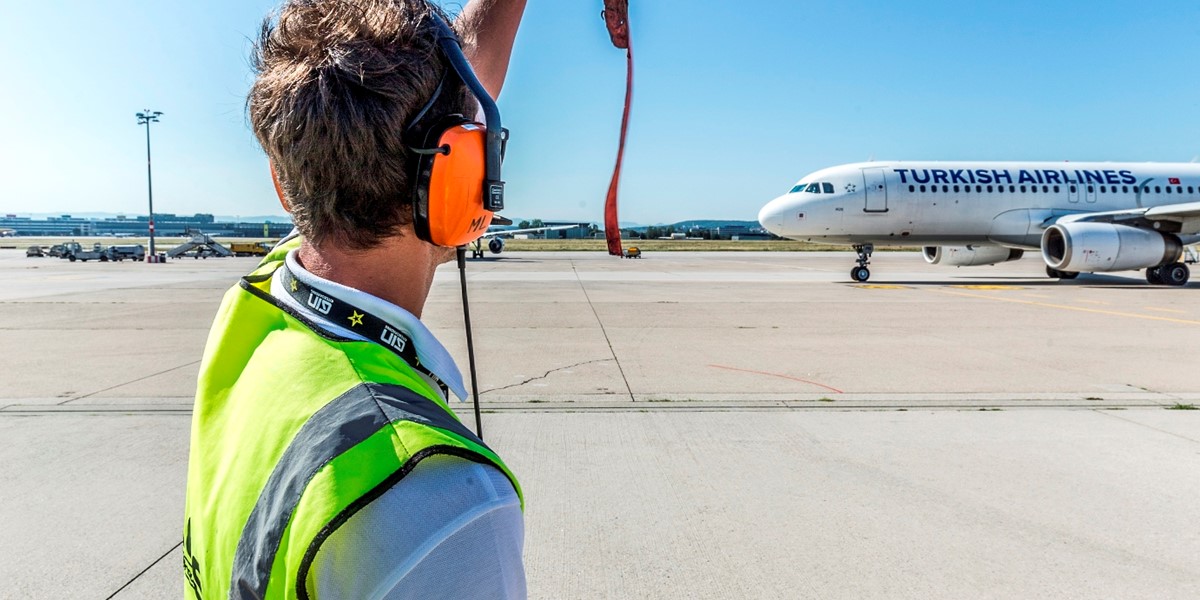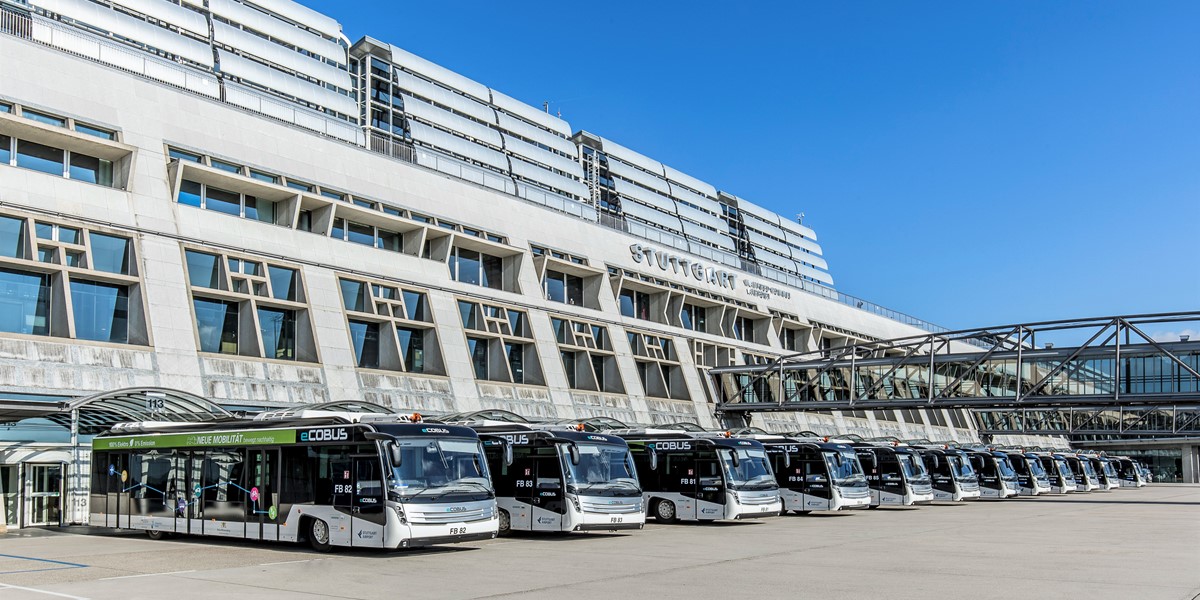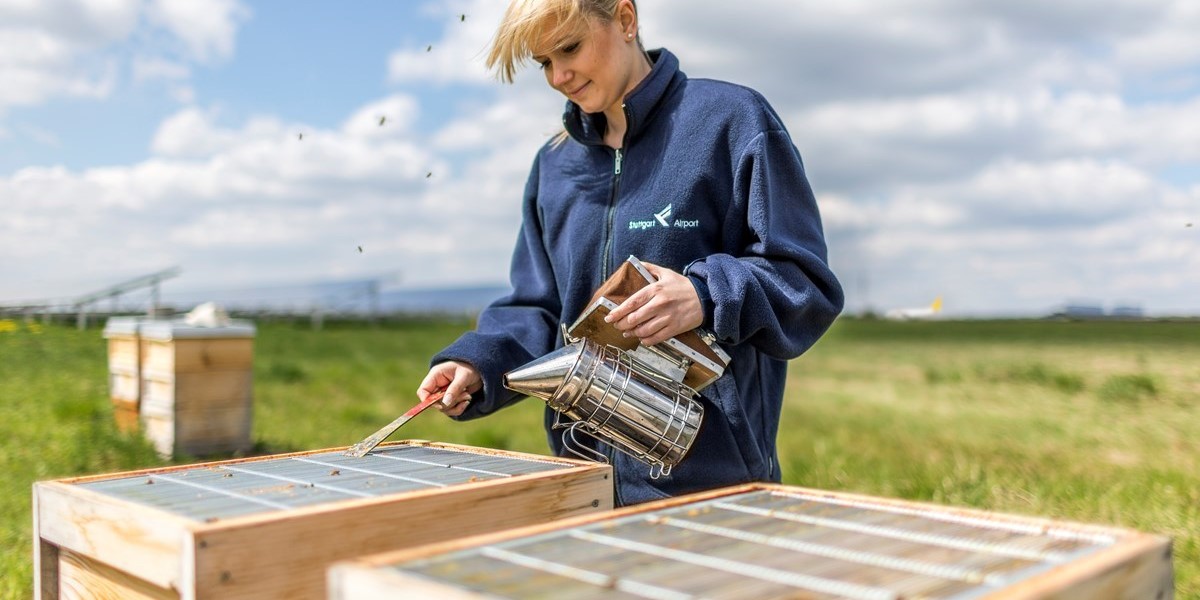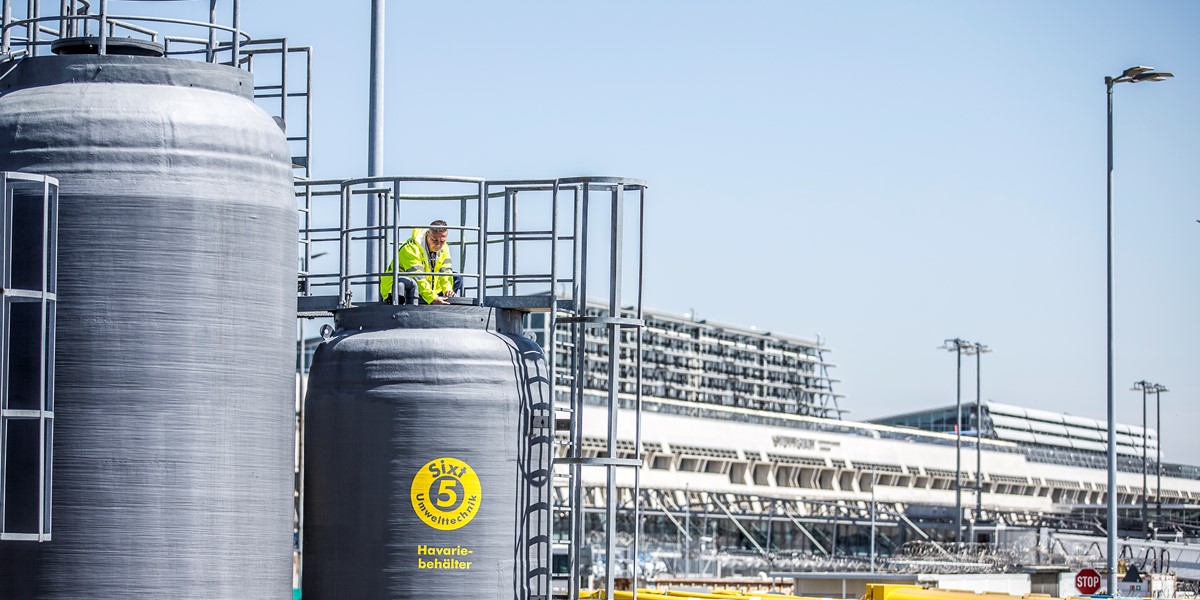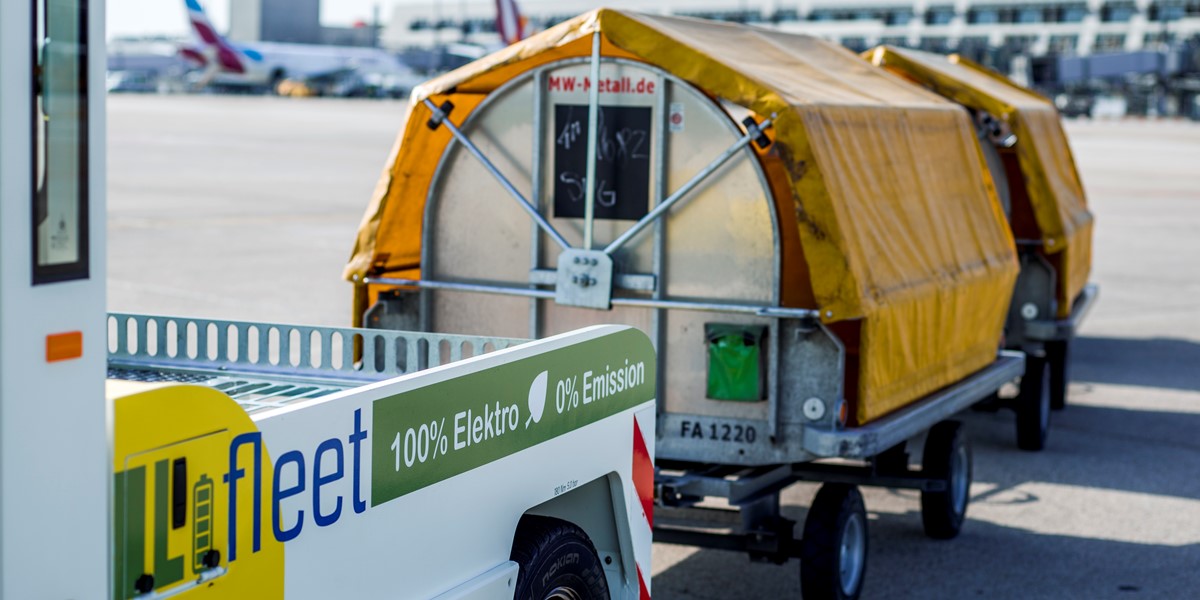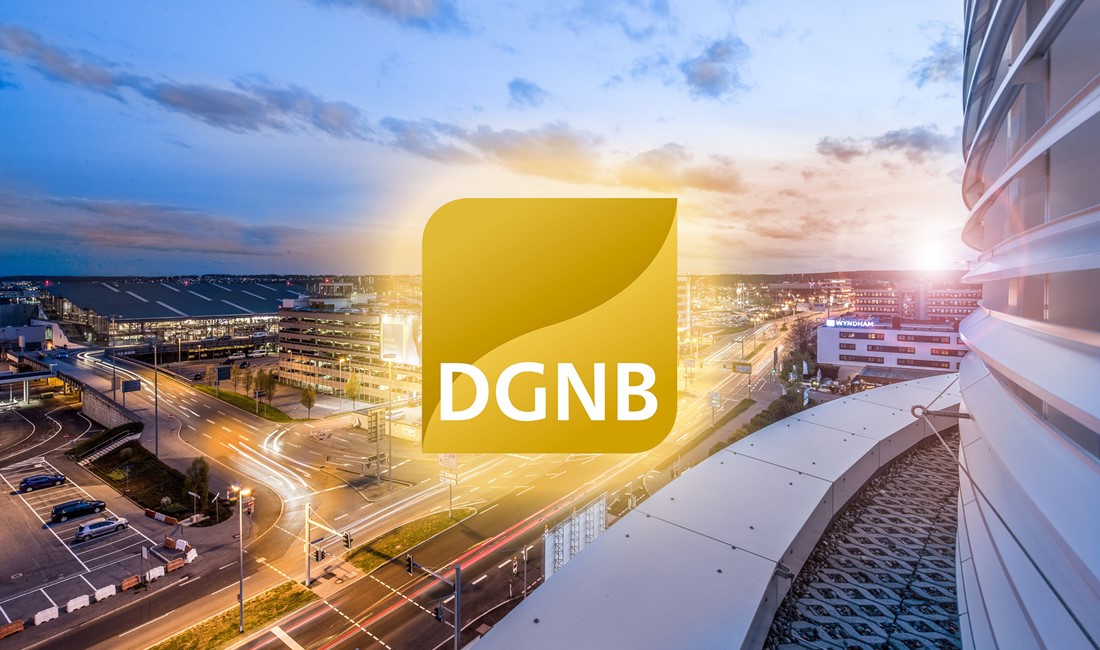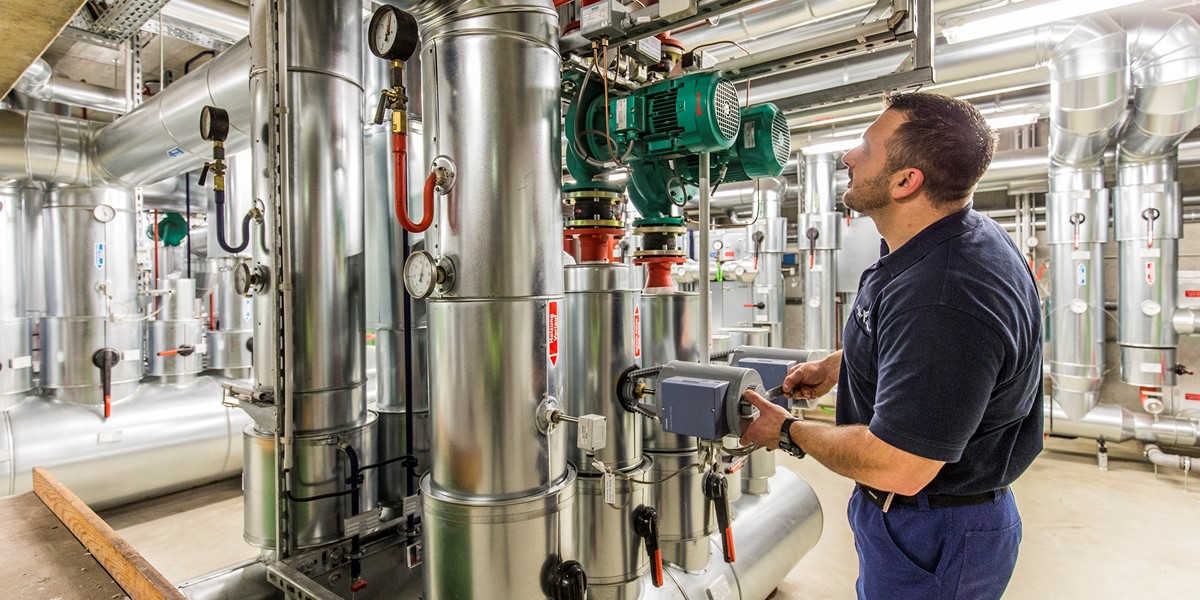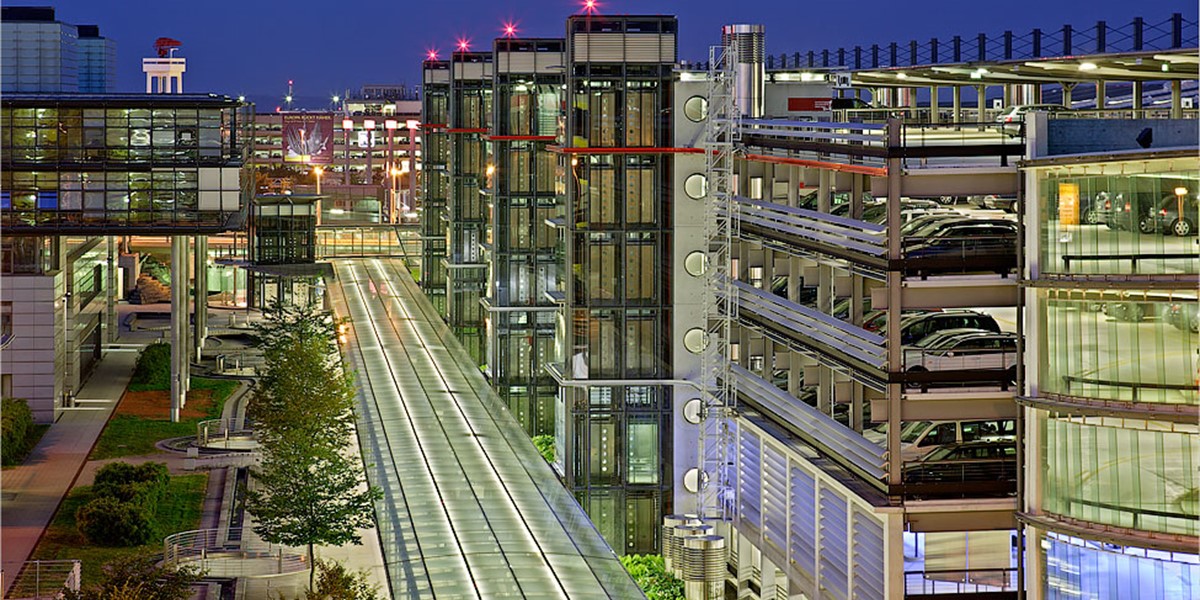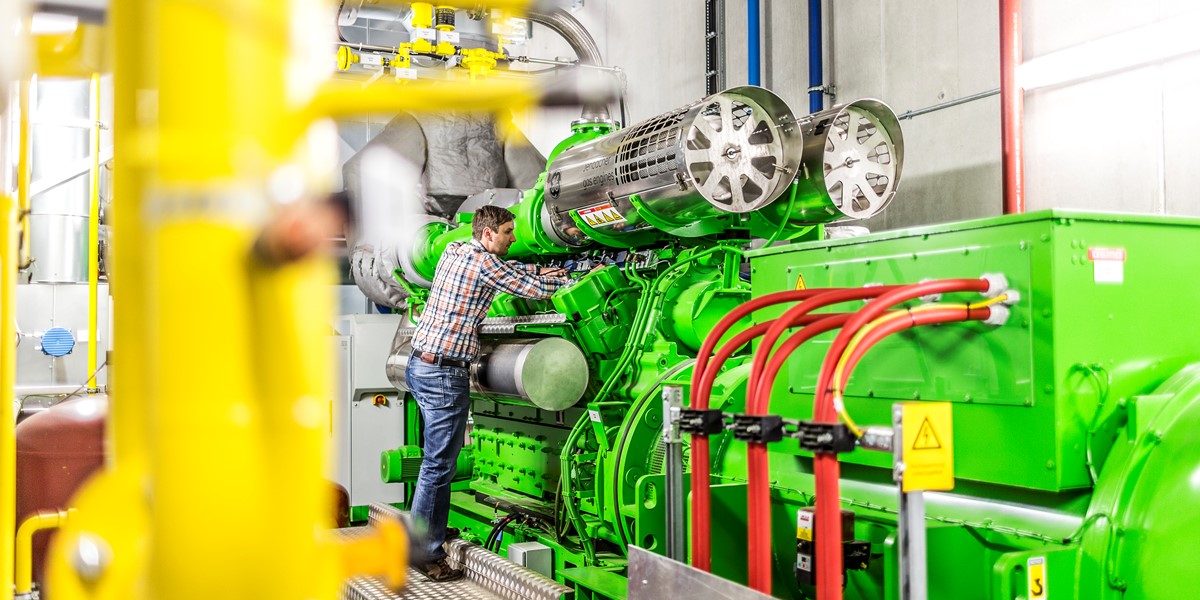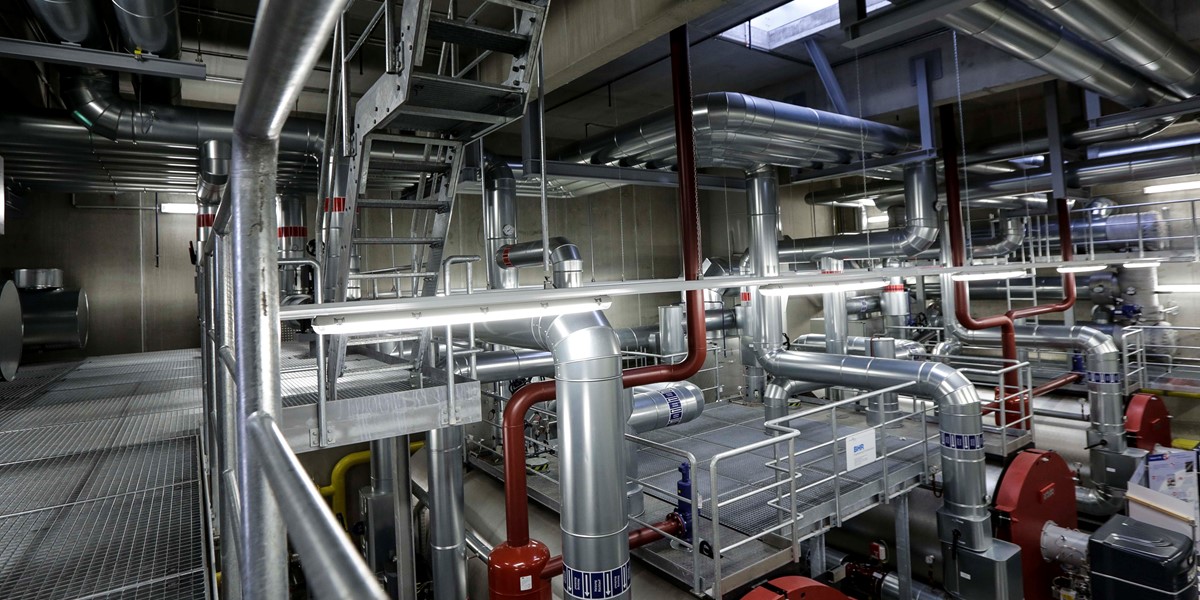Nach unten scrollen
intro
Stuttgart Airport City: already DGNB awarded!
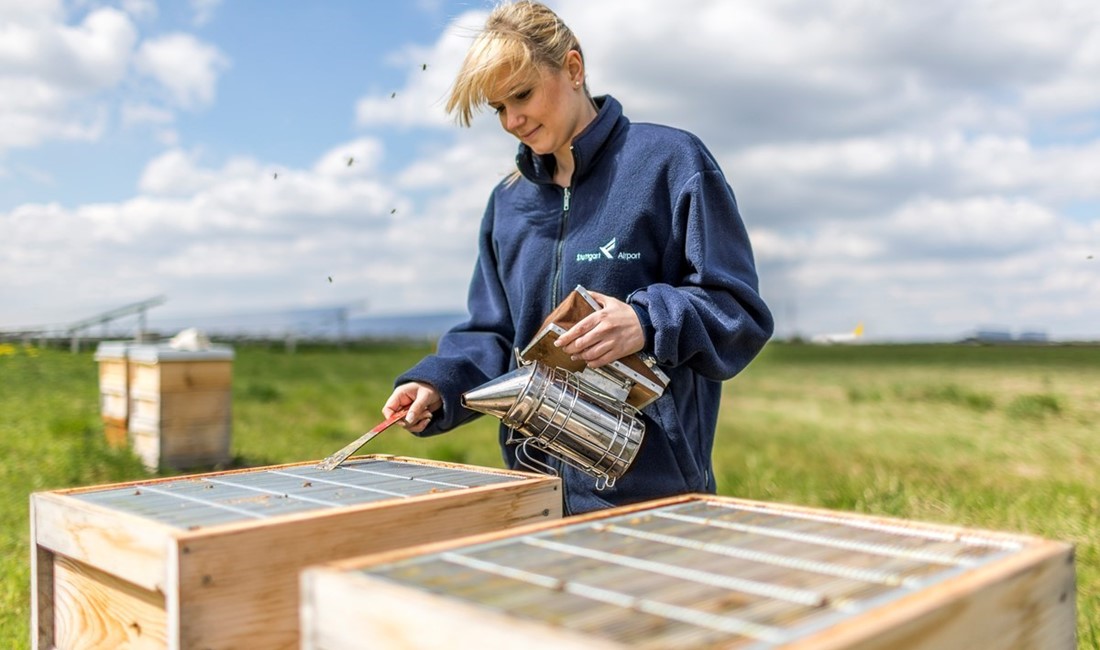
The responsible use of resources is of central importance in construction. And at Stuttgart Airport, an entire business city is being built! Thus, the highest environmental standards are applied to all new construction projects to ensure sustainable and long-term development. In this way, the new office buildings in Stuttgart Airport City underpin Stuttgart Airport's corporate goal of continually being one of the most efficient and sustainable airports in Europe.
FAIRPORT STR
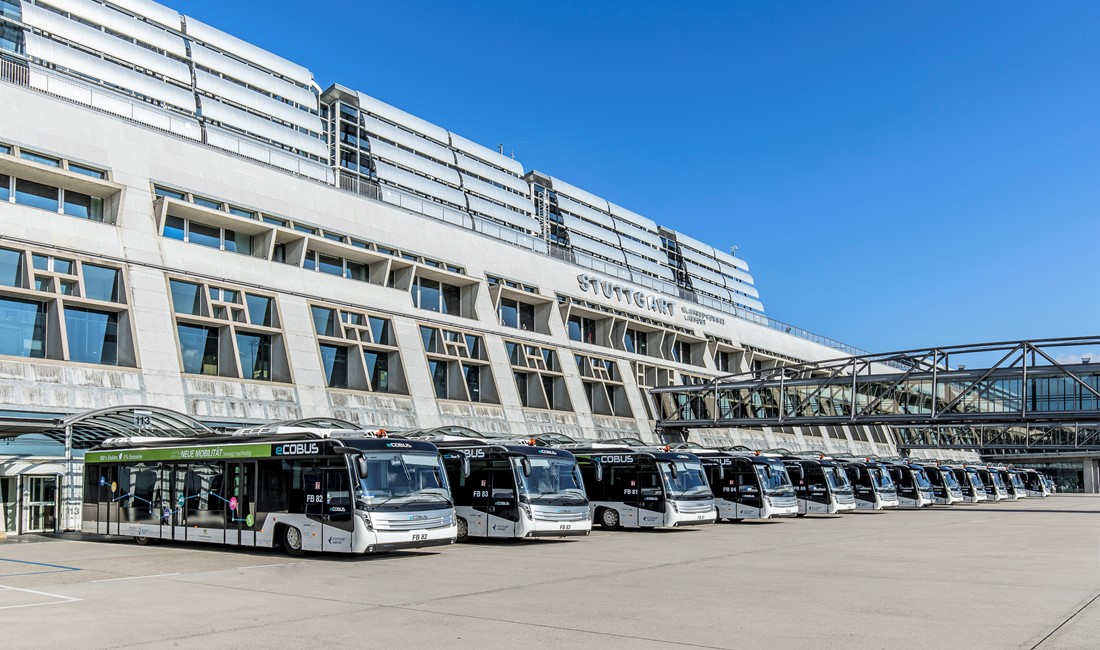
fairport STR: commitment and responsibility for generations
As Stuttgart Airport City and the Stuttgart Airport (STR) grow, so does the responsibility that goes along with it. In this context, it is the aim of the Airport to operate sustainably and efficiently. It wants to create added value - for employees, the environment, the economy and people in the region. The fairport Code, a standard of conduct with binding values and standards for employees, provides the foundation for achieving these goals.
In the course of the "scale-up! project," existing apron vehicles will be gradually replaced by electrically powered vehicles. Since 2018, the entire passenger and baggage transport has been battery-powered and emission-free. This means that all 23 baggage tractors and all 16 buses as well as seven conveyor belts and one high-loader vehicle with electric drive are already in use.
By 2018, the entire passenger and baggage transport will be battery-powered and emission-free.
The quality of the honey from the bee colonies on the airport grounds also speaks for itself. Bees react very sensitively to air pollutants and are a good indicator of possible pollution. However, the analysis of the honey at the airport shows no adverse effects.
The airport has been operating its own waste management center since 1997. It achieves a remarkable recycling rate of 99%. The waste management center is certified as a specialist waste management company and also handles waste from other companies on the airport premises.
CERTIFICATION
ENERGY SUPPLY
Energy Supply: Well planned
The office properties in Stuttgart Airport City also benefit from an ultra-modern infrastructure in terms of energy supply. With the commissioning of the natural gas-fired combined heat and power plant in 2013, emissions from energy and heat generation were immediately reduced by 23%.
Photovoltaic systems on the Bosch multi-storey car park above the A8 and at other locations support the environmentally-friendly energy mix. More than 2.3 GWh of electricity are generated each year on a total area of 15,000 m². About one third of the energy generated by the company is used by the company itself and two thirds is fed into the public grid.
All additional electricity purchased for the airport's total requirements comes 100% from renewable sources. In 2017, the share of renewable energy for the entire site was a remarkable 47%.
Top location at the gateway to the world
Accessibility and flexibility are decisive success factors: The Stuttgart Airport City location gives your company a competitive advantage.
Find out more about Stuttgart Airport City, the location for global business.


